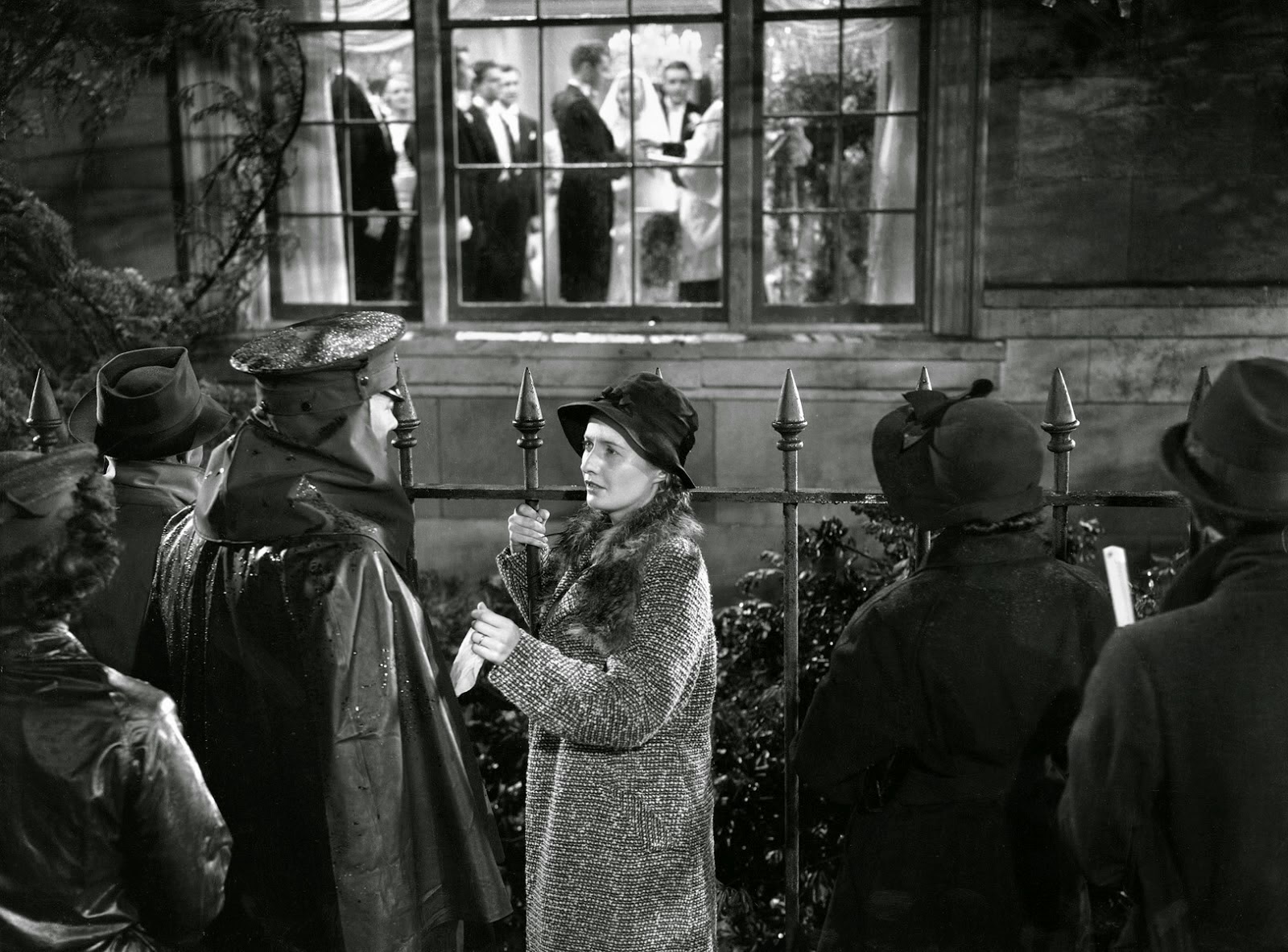 A touching mother-daughter drama, Stella Dallas is an affecting and brilliantly conceived film, featuring a career-highlight performance from star Barbara Stanwyck.
A touching mother-daughter drama, Stella Dallas is an affecting and brilliantly conceived film, featuring a career-highlight performance from star Barbara Stanwyck.In a Massachusetts factory town after the Great War, Stella Martin (Stanwyck) is eager to win the heart of the handsome and capable Stephen Dallas (John Boles). Now working in mid-management at the factory, Stephen comes from a once rich family, and lost his father to suicide and his bride-to-be Helen to another man. Stella eventually wins Stephen's heart; they get married and a year later daughter Laurel is born.
Stella is eager to be seen as a sophisticated society woman, but her behaviour is over-eager and more awkward than elegant. Stephen pleads with her to calm down and be herself, but she makes friends with the boorish Ed Munn (Alan Hale), further alienating Stephen who moves to New York to further his career. Left alone Stella dedicates her life to Laurel, who grows into a well-behaved young lady (Anne Shirley), devoted to her mother but still on good terms with her distant father. Stephen has meanwhile reconnected with Helen (Barbara O'Neil), now a widow with three boys of her own. With Stella struggling to remain relevant in Laurel's life, the fractured family reaches a crossroads.
Directed by King Vidor and based on the book by Olive Higgins Prouty, Stella Dallas is an always engaging drama about a woman who reached for the stars of the good life but found her grasp exceeding her abilities to cope. Stella's basic social talent gives her a taste of a life that she could have enjoyed, but her fundamental lack of sophistication forces her to stumble, fall and ultimately reevaluate what is most important to her. This is not a film about happiness or sadness, just life, unintended consequences and the challenging decisions that must be confronted under less than ideal conditions.
The mother-daughter relationship is at the core of the film, and Laurel becomes the one anchor in Stella's life. Stella strives to give her daughter the best possible opportunities in life, and in return, Laurel gives her mother a reason to persevere. Rarely has a film so beautifully captured the complex and difficult bond of inter-dependence between mother and daughter.
Vidor keeps the film moving at a brisk pace, the progression of the familial relationships summarized through key scenes that demonstrate, rather than talk about, the evolution of connections between Stella, Stephen, Ed, Laurel and Helen. The film's editing and pacing are years ahead of their time, Vidor producing a masterclass of vignettes that say a thousand words without dialogue.
Ed clumsily snuffing out a cigar in young Laurel's bowl is shown but never mentioned; it represents a breaking point for Stephen. Stella's fashion disaster at the tennis club is never discussed by anyone except as gossip between unnamed strangers. Yet it is the moment of truth for both Stella and Laurel, the physical manifestation of Stella reaching the limits of her usefulness as a mother to the blossoming Laurel.
Barbara Stanwyck delivers the performance of her life as Stella Dallas, starting as a young flirty thing eager to land a prize husband, and ending as a mother willing to sacrifice the world for her daughter's happiness. It is to Stanwyck's enormous credit that she nails complex emotions without once resorting to over-the-top emotional outbursts or excessive melodrama. Indeed, Stanwyck scales the peaks of intensity by pulling back, delivering with silence and deft expressions mountains of feeling.
The many remarkable highlights include Stella lying awake in her train bunk bed, overhearing gossip, unable to do anything except quietly grieve for the embarrassment caused to her daughter. And the final scene, with Stella alone and silent, this time behind the fence, outside the window and in the rain witnessing her life carrying on without her, is devastating in its combination of outright relief and unimaginable pain on Stella's face.
This was the first of four Best Actress Academy Award nominations in eleven years for Stanwyck. She never won, but it is doubtful that she ever came closer to receiving the Oscar.
The supporting cast is solid, with Anne Shirley catching the eye as the grown up Laurel, a young woman caught between a deep love for her imperfect mother and the twinkling promises that only start to become available once Stella is sidelined.
Stella Dallas is an exceptional achievement, a film about people with emotions real and pure, ensuring enduring relevance.
All Ace Black Blog Movie Reviews are here.














No comments:
Post a Comment
We welcome reader comments about this post.